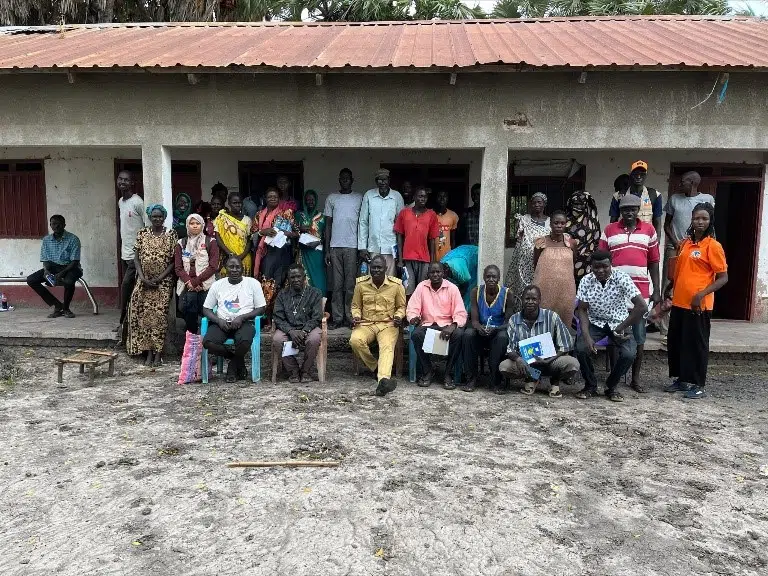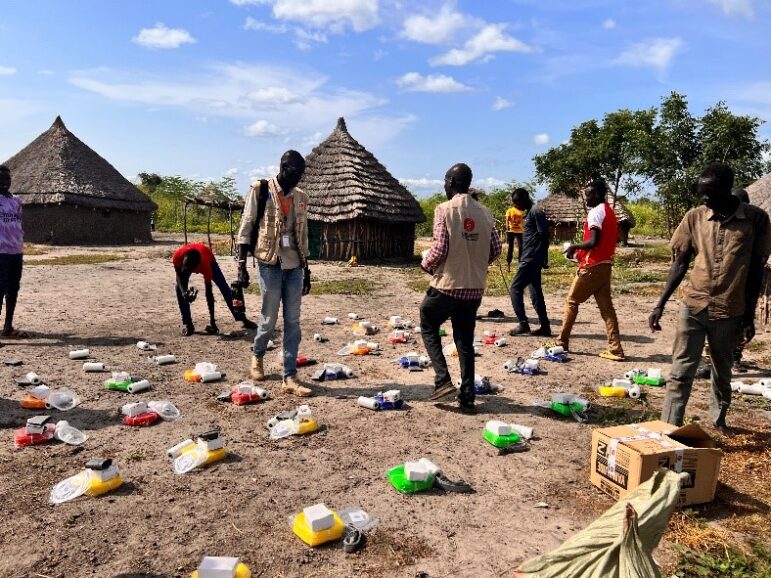Breaking Barriers: Disability Inclusion in South Sudan
In South Sudan, people with disabilities—especially those who are blind—have long been excluded from economic and social life. But that’s beginning to change. Through a program led by Nonviolent Peaceforce (NP) and Solidarités International (SI), communities in Melut, Malakal, and Baliet are breaking barriers and reshaping what inclusion looks like. From fishing and farming to financial independence and protection training, people with disabilities are proving they are not just participants, but leaders in their communities. Elizabeth* is one of them.


Elizabeth* grips her walking stick as she steps carefully onto the riverbank in Malakal, South Sudan. She listens to the sounds around her—the water lapping against the shore, the quiet murmur of others preparing their fishing nets. Just a year ago, she wouldn’t have imagined herself here. As a blind woman in a community that often saw disability as a burden, she was used to being overlooked.
That changed when she joined a program led by Nonviolent Peaceforce (NP) and Solidarités International (SI). Operating in Melut, Malakal, and Baliet, South Sudan, NP and SI are working to strengthen community resilience and nonviolent conflict management. Theeir approach is not about aid—it’s about ensuring that all community members, including people with disabilities, can build self-sufficiency and participate fully in society. Many of the community members with disabilities engaged in this project are blind men and women, a group that has historically faced extreme discrimination. Yet, with access to resources and training, they are proving that they can lead, provide for their families, and contribute to their communities in meaningful ways.
Through the program, Elizabeth and others in her village received fishing and farming kits—a way to earn an income and provide for their families. SI prioritized households with people with disabilities in distributions, ensuring they were not left behind. NP made sure those distributions were accessible, offering support so Elizabeth and others could navigate the process without barriers.
For Elizabeth, the changes went beyond earning an income. She became part of a village savings and loan association (VSLA), where she learned how to save and manage money. In these groups, members elect their own leaders, set their own rules, and work together to create financial stability—something that once felt out of reach for Elizabeth and many others.
But perhaps the most life-changing part of the program was the training on safety and protection. People with disabilities face heightened risks in conflict, including physical violence, exploitation, and sexual violence. NP’s Unarmed Civilian Protection (UCP) training taught Elizabeth how to navigate dangerous situations and advocate for herself and others—from confronting gender-based violence, to child protection, to accessing essential humanitarian services. She also learned where to turn for support if she or someone she knew faced violence. Before, she wouldn’t have known who to trust or how to seek help. Now, she understands what steps to take—and she’s passing that knowledge on to others.
The work in Upper Nile is about more than just distributing supplies—it’s about shifting mindsets and breaking barriers.
The impact is already evident. People with disabilities, like Elizabeth, who were once isolated are now leading in VSLA meetings, fishing alongside their neighbors, and engaging in conflict resolution discussions. They are no longer seen as passive recipients of aid but as active agents of change. This project is more than just support—it’s a testament to resilience, inclusion, and the power of breaking barriers in communities that need it most.
* * *
*Composite/name changed
These activities are a part of our project with Solidarités International (SI) to support community resilience and nonviolent conflict management in conflict and flood-affected areas of Upper Nile and Jonglei States, South Sudan, which is funded by the European Union and supporters like you.
